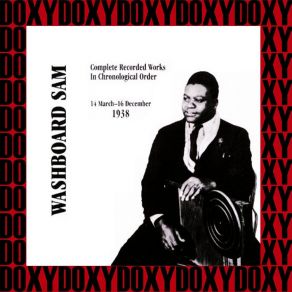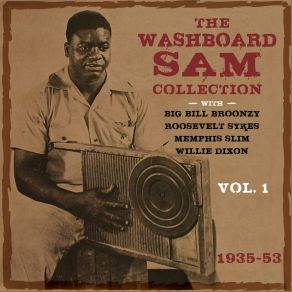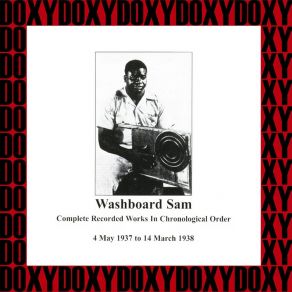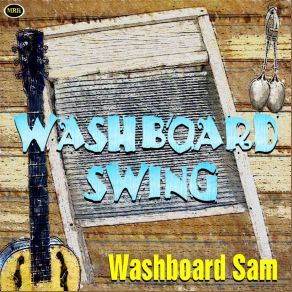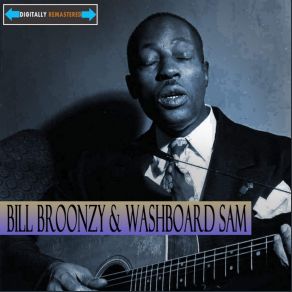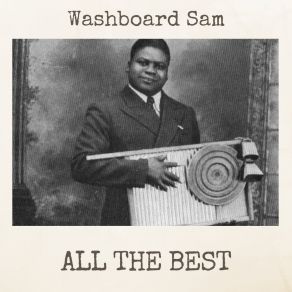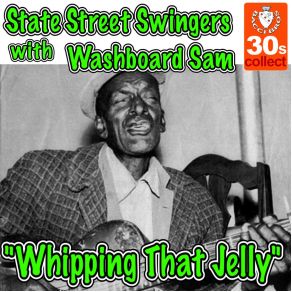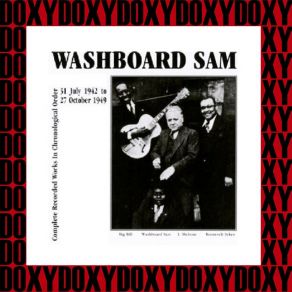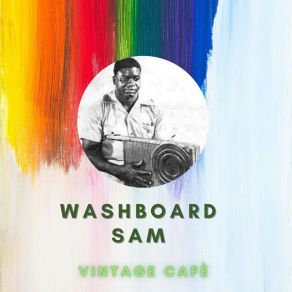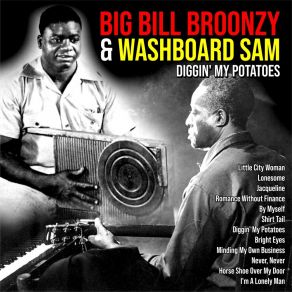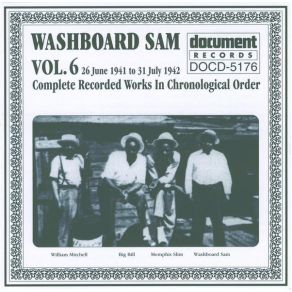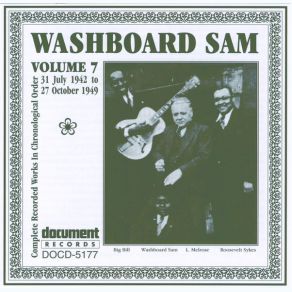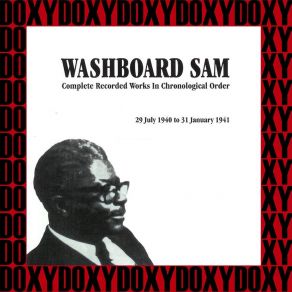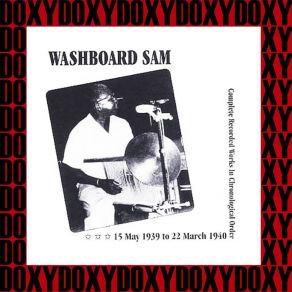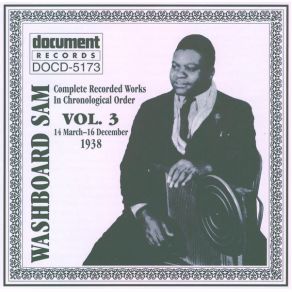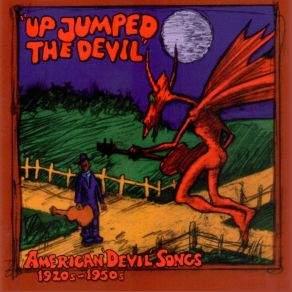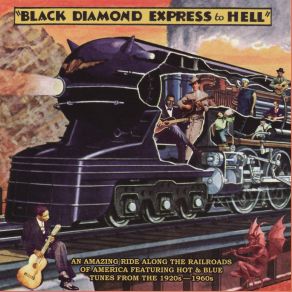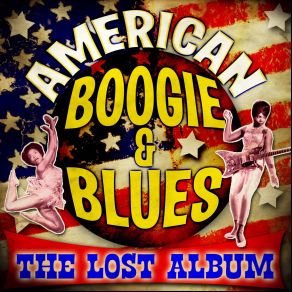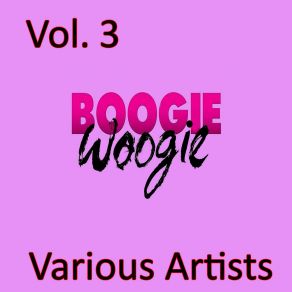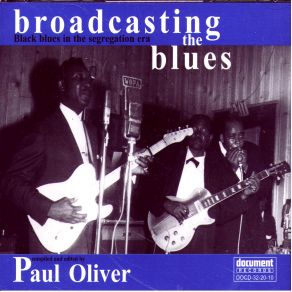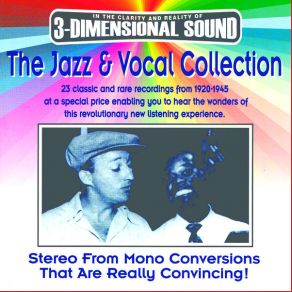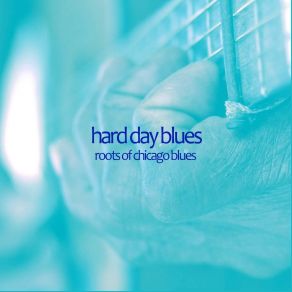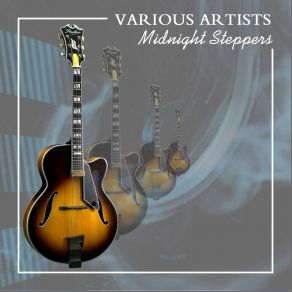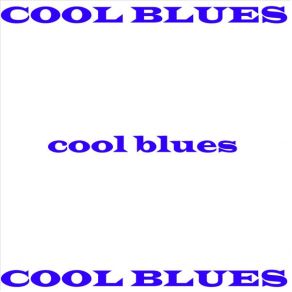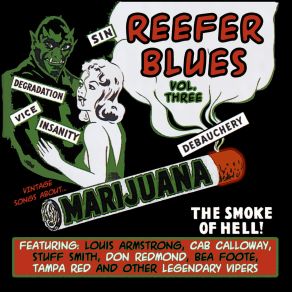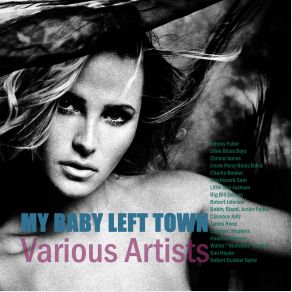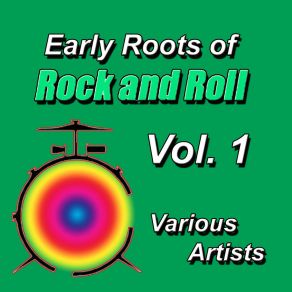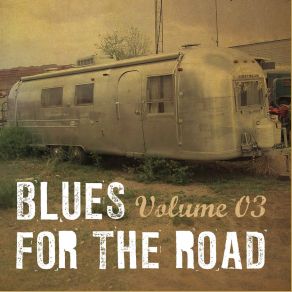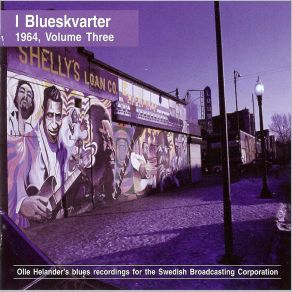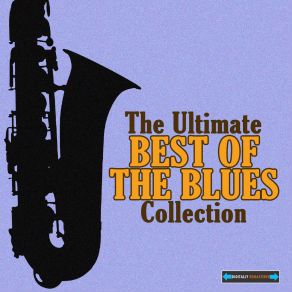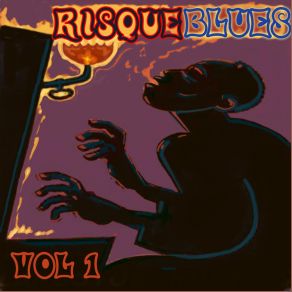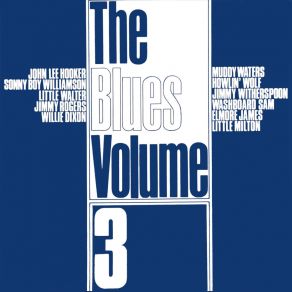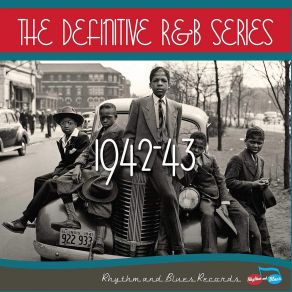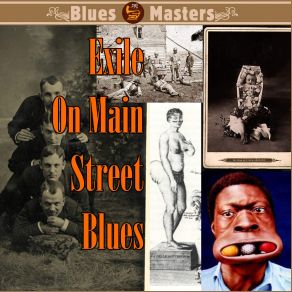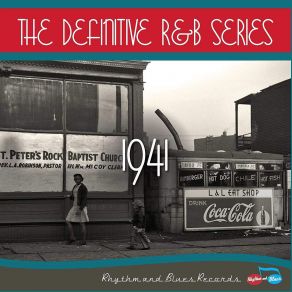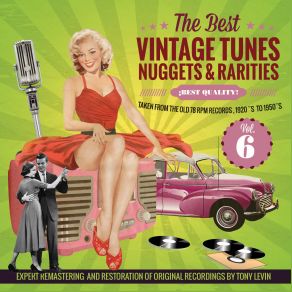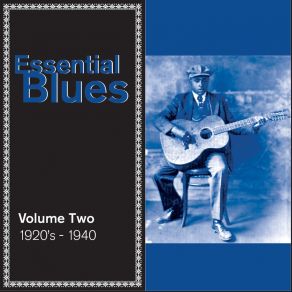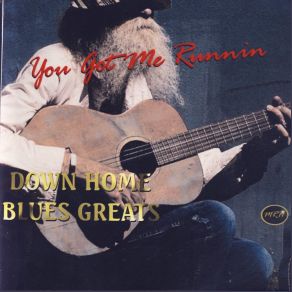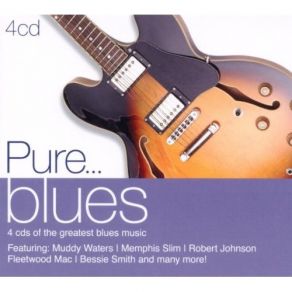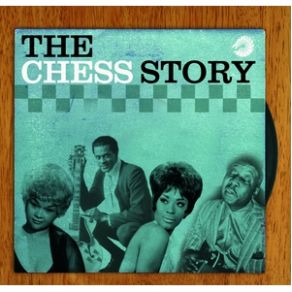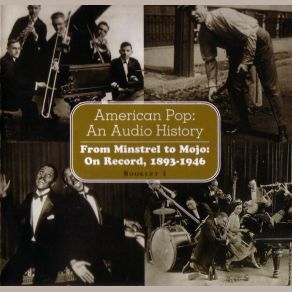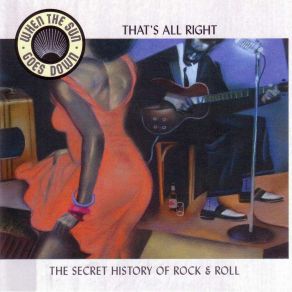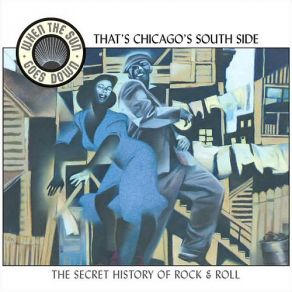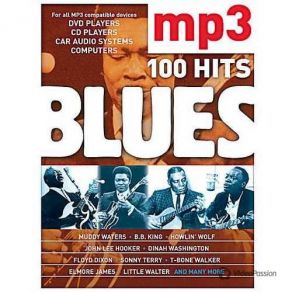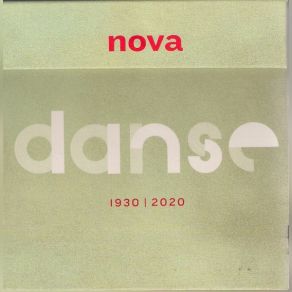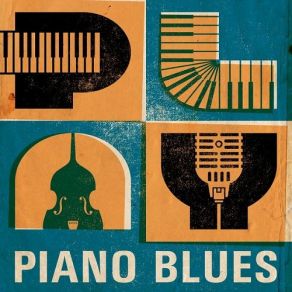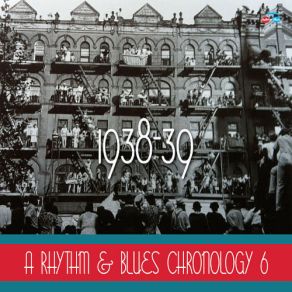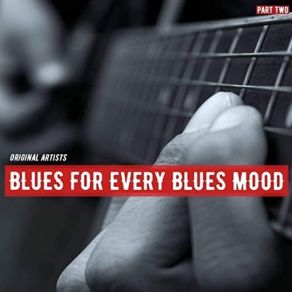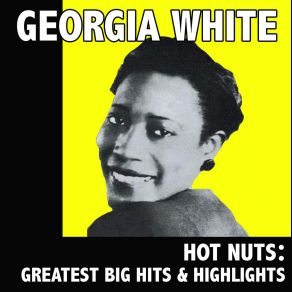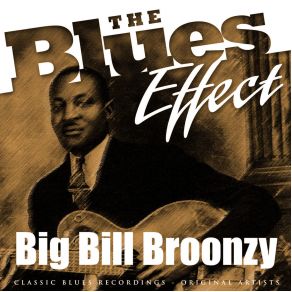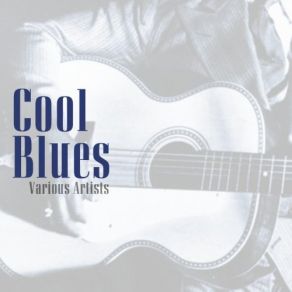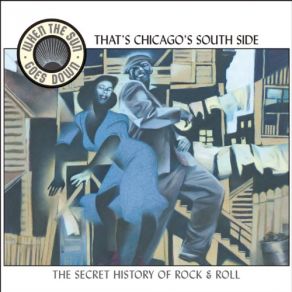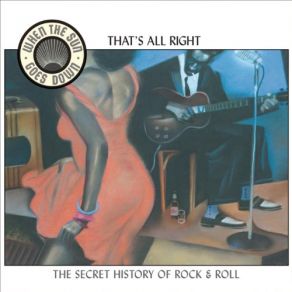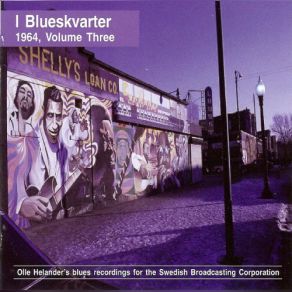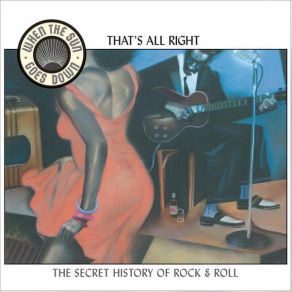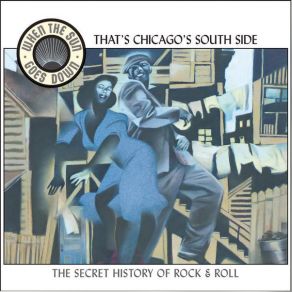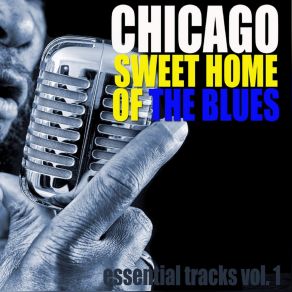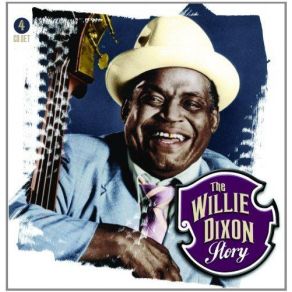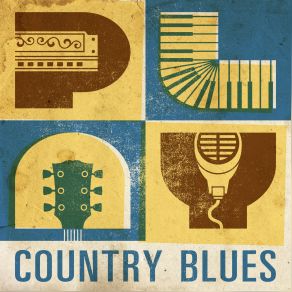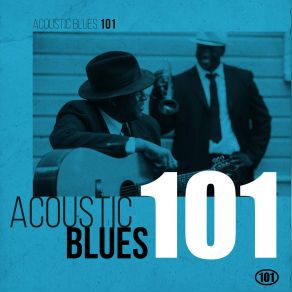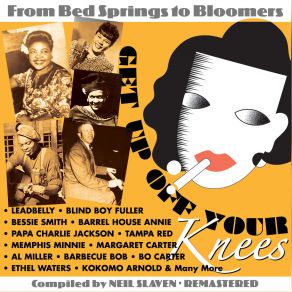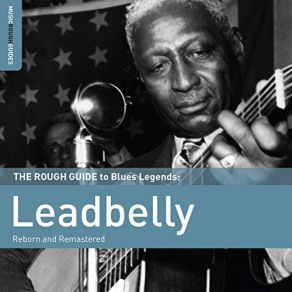Washboard Sam
Wikimp3 information about the music of Washboard Sam. On our website we have 22 albums and 70 collections of artist Washboard Sam. You can find useful information and download songs of this artist. We also know that Washboard Sam represents Blues genres.
Biography
[Edit]A popular hokum blues artist, Washboard Sam recorded hundreds of records in the late '30s and '40s, usually with singer/guitarist Big Bill Broonzy. Out of all the washboard players of the era, Sam was the most popular, which was due not only to his to his washboard talent, but also to his skills as a songwriter, as well as his strong voice. As an accompanist, Sam not only played with Broonzy, but also with bluesmen like Bukka White, Memphis Slim, Willie Lacey, and Jazz Gillum.
Washboard Sam (born Robert Brown) was the illegitimate son of Frank Broonzy, who also fathered Big Bill Broonzy. Sam was raised in Arkansas and worked on a farm. He moved to Memphis in the early '20s to play the blues. While in Memphis, he met Sleepy John Estes and Hammie Nixon and the trio played street corners, collecting tips from passers-by. In 1932, Sam moved to Chicago. Initially he played for tips, but soon he began performing regularly with Big Bill Broonzy. Within a few years, Sam was supporting Broonzy on the guitarist's Bluebird recordings, and he began supporting a number of different musicians on their recording sessions, including pianist Memphis Slim, bassist Ransom Knowlin, and a handful of saxophone players, who all recorded for Bluebird.
In 1935, Washboard Sam began recording for both Bluebird and Vocalion Records, often supported by Big Bill Broonzy. Throughout the rest of the '30s and the '40s, Sam was one of the most popular Chicago bluesmen, selling numerous records and playing to packed audiences. After World War II, his audience began to shrink, largely because he had difficulty adapting to the new electric blues. In 1953, Washboard Sam recorded a session for Chess Records and then retired. In the early '60s, Willie Dixon and Memphis Slim tried to persuade Sam to return to the stage to capitalize on the blues revival. Initially, he refused, but in 1963, he began performing concerts in clubs and ccoffee housesin Chicago; he even played a handful of dates in Europe in early 1964. Washboard Sam made his final recordings for the small, Chicago-based Spivey label in 1964. The following year, his health quickly declined and he stopped recording and playing shows. In November of 1966, he died of heart disease.
Title: Washboard Sam - Vintage Cafè / Washboard Sam - Vintage Cafe
Artist: Washboard Sam
Genre: Jazz
Collections
Title: Up Jumped the Devil (American Devil's Song 1920-1950)
Genre: Blues
Title: Black Diamond Express To Hell
Genre: Blues
Title: American Boogie & Blues - The Lost Album
Genre: Blues
Title: Boogie Woogie, Vol. 3
Genre: Blues
Title: Old Time Blues
Genre: Blues
Title: The Jazz & Vocal Collection
Genre: Jazz
Title: Midnight Steppers
Genre: Blues
Title: Cool Blues
Genre: Blues
Title: My Baby Left Town
Genre: Blues
Title: Early Roots of Rock & Roll, Vol. 1
Genre: Rock
Title: Blues for the Road, Vol. 3
Title: I Blueskvarter 1964, Volume Three
Genre: Blues
Title: I Blueskvarter: Chicago 1964, Volume Two
Genre: Blues
Title: I Blueskvarter, Chicago 1964, Volume Two
Genre: Blues
Title: The Ultimate Best of the Blues Collection
Genre: Blues
Title: I Blueskvarter 1964, Vol. 3
Genre: Blues
Title: Ultimate Blues Collection Vol 5
Genre: Hip Hop/R&B, Soul, Blues
Title: The Definitive Blues Collection, Vol. 19
Genre: Hip Hop/R&B, Soul, Blues
Title: Risque Blues, Vol. 1
Genre: Blues
Title: The Blues, Vol. 3
Genre: Blues
Title: The Definitive R&B Series: 1942-1943
Genre: Hip Hop/R&B, Soul
Title: Exile On Main Street Blues
Genre: Blues
Title: The Best Vintage Tunes. Nuggets & Rarities, Vol. 11
Genre: Pop
Title: Chicago Urban Blues
Genre: Blues
Title: Essential Blues, Vol. 2: 1920S - 1940
Genre: Blues
Title: Gambling Blues
Title: The Definitive Blues Collection, Vol. 13
Genre: Hip Hop/R&B, Soul, Blues
Title: Hoochie Coochie Men
Title: You Got Me Runnin': Down Home Blues Greats
Genre: Blues
Title: Let Me Tell You About The Blues: Chicago
Genre: Blues
Title: Pure... Blues (CD3)
Genre: Blues
Title: Roots Of Rock N' Roll Vol. 2, 1938-1946 (CD1)
Genre: Rock & Roll
Title: Rhythm & Blues - Original Masters (Cd 9)
Genre: Hip Hop/R&B
Title: Thirties Blues (The Blues Collection Vol. 80)
Genre: Blues
Title: The Chess Story 1947-1975 (CD03)
Genre: Blues
Title: Traveling Man: A Blues Travel Guide
Genre: Blues
Title: Blues Connection (Vol. 1: How Long Blues) (CD1)
Genre: Hip Hop/R&B, Blues
Title: Chicago In Mind
Genre: Blues
Title: The Melotone Blues Story (CD1)
Genre: Blues
Title: The Melotone Blues Story (CD2)
Genre: Blues
Title: 100 Blues Hits 2015 (CD2)
Genre: Blues
Title: Rhythm & Blues: Original Masters
Genre: Hip Hop/R&B
Title: As Good As It Gets: Jukebox Blues (CD2)
Genre: Hip Hop/R&B, Blues, Gospel
Title: Nova - Coffret Danse (CD2)
Genre: Electronica, Hip Hop/R&B, Jazz, Rock, Reggae, Latin, Funk
Title: Play - Piano Blues
Genre: Downtempo, Chill Out, Blues, Instrumental, Instrumental
Title: Voodoo Blues: The Devil Within (CD1)
Genre: Blues
Title: Risque Blues Vol. 1
Genre: Blues
Title: 100 Tubes Blues (CD1)
Genre: Blues
Title: Rhythm And Blues Chronology 6: 1938-39 (CD1)
Genre: Hip Hop/R&B, Blues, Jazz
Title: Rhythm And Blues Chronology 6: 1938-39 (CD2)
Genre: Hip Hop/R&B, Blues, Jazz
Title: Rhythm And Blues Chronology 6: 1938-39 (CD3)
Genre: Hip Hop/R&B, Blues, Jazz
Title: Rhythm & Blues Chronology 6: 39 (CD1)
Genre: Blues, Jazz, Avant Garde Jazz, Rock, Avant Garde Metal, Country, Classical
Title: Rhythm & Blues Chronology 6: 39 (CD2)
Genre: Blues, Jazz, Avant Garde Jazz, Rock, Avant Garde Metal, Country, Classical
Title: Rhythm & Blues Chronology 6: 39 (CD3)
Genre: Blues, Jazz, Avant Garde Jazz, Rock, Avant Garde Metal, Country, Classical
Title: Blues For Every Blues Mood, Part Two
Genre: Blues
Title: A Taste Of 1940
Genre: Jazz
Featuring albums
Title: Chicago, Sweet Home of the Blues Essential Tracks, Vol. 1
Artist: Various Artists
Genre: Blues
Title: He Wille Dixon Story 1940-1960 (CD2: The Session Man)
Artist: Willie Dixon
Genre: Hip Hop/R&B, Blues, Jazz
